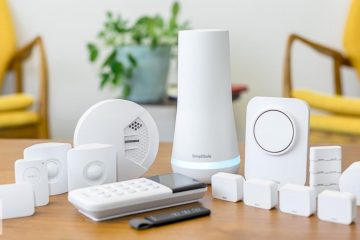What foods trigger palpitations?
What foods trigger palpitations?
Some people have palpitations after heavy meals rich in carbohydrates, sugar, or fat. Sometimes, eating foods with a lot of monosodium glutamate (MSG), nitrates, or sodium can bring them on, too. If you have heart palpitations after eating certain foods, it could be due to food sensitivity.
What should I avoid if I have heart palpitations?
Lifestyle and home remedies
- Reduce stress. Try relaxation techniques, such as meditation, yoga or deep breathing.
- Avoid stimulants. Caffeine, nicotine, some cold medicines and energy drinks can make your heart beat quickly or irregularly.
- Avoid illegal drugs.
How do you stop heart palpitations fast?
The following methods can help to reduce palpitations.
- Perform relaxation techniques.
- Reduce or eliminate stimulant intake.
- Stimulate the vagus nerve.
- Keep electrolytes balanced.
- Keep hydrated.
- Avoid excessive alcohol use.
- Exercise regularly.
Why does my heart beat fast after eating?
Eating does cause changes in blood flow, which can result in an increased heart rate. Eating can also cause an increase in blood pressure. If you overeat, you force your heart to work harder than normal. You need more blood going to your digestive system, which causes your heart rate to go up.
Does drinking water help lower heart rate?
Your heart rate may temporarily spike due to nervousness, stress, dehydration or overexertion. Sitting down, drinking water, and taking slow, deep breaths can generally lower your heart rate.
Can lack of water cause rapid heart rate?
Dehydration causes strain on your heart. The amount of blood circulating through your body, or blood volume, decreases when you are dehydrated. To compensate, your heart beats faster, increasing your heart rate and causing you to feel palpitations.
Are there any foods that can cause heart palpitations?
It has no virtues and is highly controversial. Aspartame can cause a variety of side effects including heart palpitations, according to a paper in The Internet Journal of Health (2008 Volume 9 Number 1). Eliminate ingestion of aspartame and see what happens. This chemical is in all sorts of items.
What happens if you eat a lot of red dye?
Additionally, both adults and children have reported an upset stomach, migraines, jitteriness, nervousness, and inability to concentrate after a high intake of Red Dye 40. The CSPI released a report that says artificial food dyes pose a “rainbow of risks,” including everything from allergies to cancer.
What causes heart palpitations, According to the Mayo Clinic?
Common causes include: 1 Strong emotional responses, such as stress, anxiety or panic attacks. 2 Depression. 3 Strenuous exercise. 4 Stimulants, including caffeine, nicotine, cocaine, amphetamines, and cold and cough medications that contain pseudoephedrine. 5 Fever. 6 (more items)
Why do I get heart palpitations when I drink caffeine?
Caffeine also acts as a diuretic, which can wash away your potassium and magnesium stores, creating an electrolyte imbalance that disrupts the heart rhythm. In my experience, placing extra stress on the heart—as caffeine does—can aggravate existing arrhythmias or cause new ones.


